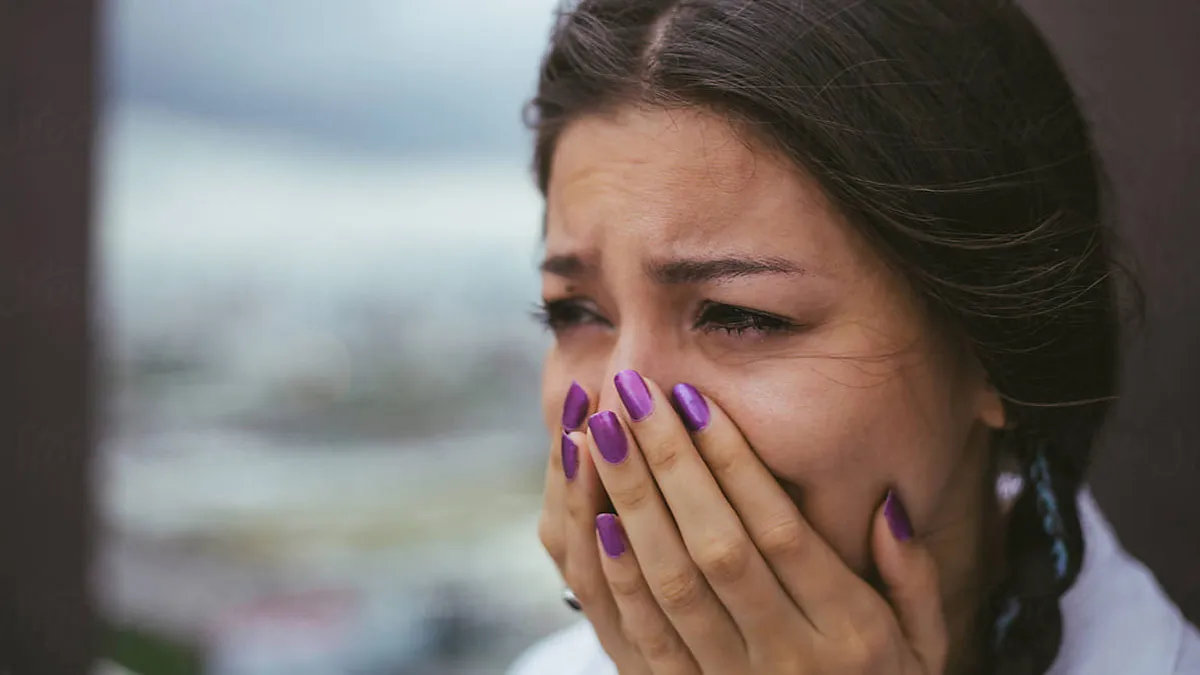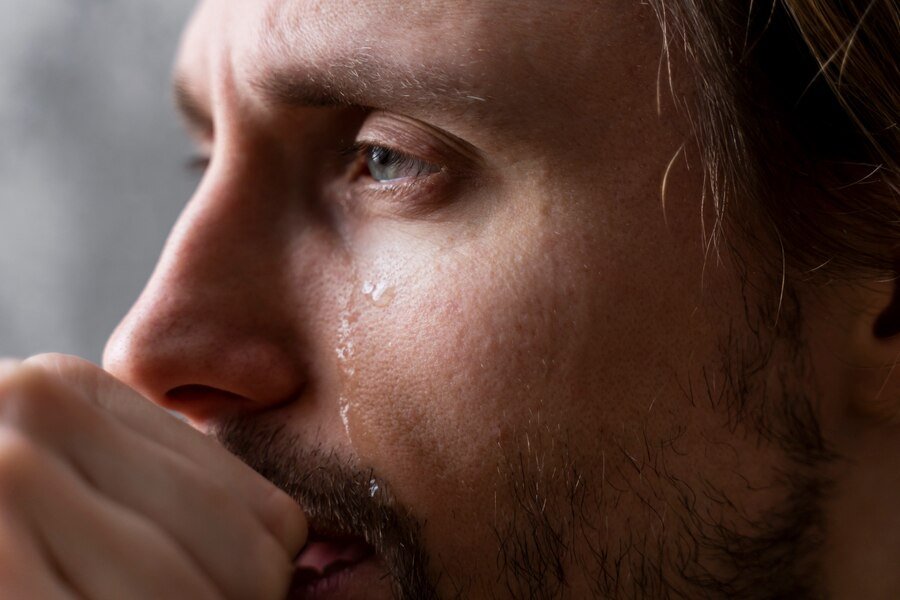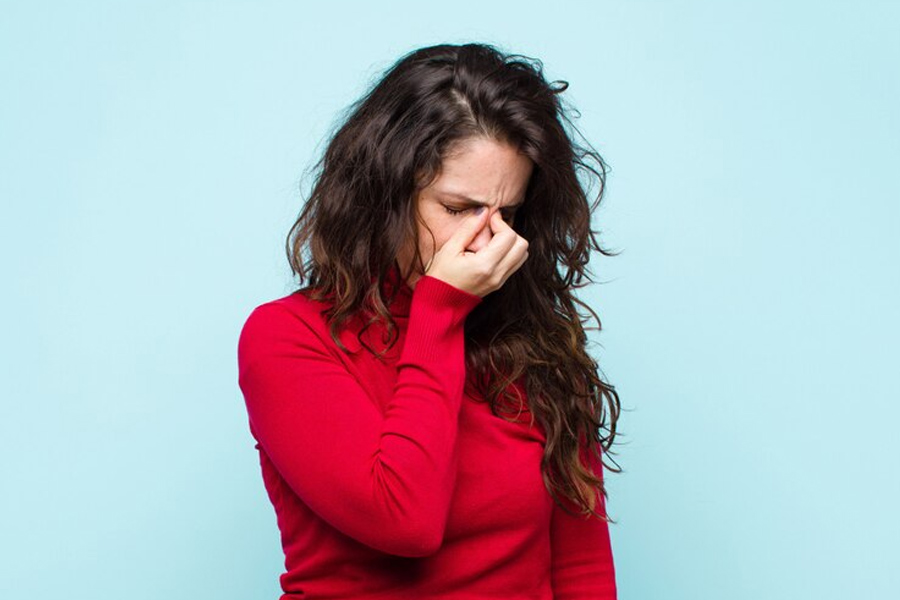
It is natural to cry when we are in pain or when we feel anxious, however, several people compose themselves or simply don’t feel the urge to cry as much as others do. Some people cry uncontrollably and at the slightest cue, despite holding it in and trying not to. This dilemma often makes us wonder if we are “weaker” than others or if something is inherently wrong with us. The answer is none. There is an interplay of several factors that cause some to cry more easily as compared to others. Here's a list of the same.
Table of Content:-
CHECK YOUR
MENTAL HEALTH

RELATED: Tears of Joy: Expert Explains Why We Cry During Moments Of Joy
Brain Structure

Frequent crying may stem from an overactive limbic system, the brain region responsible for processing emotions. In such individuals, emotional sensitivity is heightened, which causes one to have a lower emotional threshold. This increased activity leads to stronger and faster emotional reactions, often translating into tears even in response to minor stimuli.
Personality Differences
Certain personality types are more prone to crying. For example, highly sensitive people (HSPs) process emotions and sensory input more deeply than others. This trait often fosters creativity and empathy but can also make them more vulnerable to emotional overwhelm, leading to frequent tears.
Crying easily is not a flaw, although it can be distressing if it begins to interfere with daily life. When coupled with persistent sadness or anxiety, seeking professional help can be an important step toward emotional well-being.
Parenting and Childhood Development
Childhood experiences play a significant role in shaping how emotions are expressed later in life. Those who grew up in environments where feelings were validated and openly expressed are often more comfortable displaying their emotions, including crying. On the other hand, children raised in households where emotions were criticised or suppressed may struggle with emotional regulation as adults, sometimes leading to either excessive emotional control or unexpected emotional outbursts.
Societal Norms
-1737444177564.jpg)
Societal norms around crying, particularly in relation to gender, also have a considerable impact. Historically, women have been seen as more likely to cry, whereas men are often expected to suppress their emotions in favour of stoicism. This expectation can create internal conflict for men, who may suppress their natural emotional responses to conform to societal ideals.
Underlying Mental Health Concerns
Frequent crying can sometimes signal underlying mental health conditions such as anxiety or depression. Anxiety disorders can heighten emotional responses, making tears more frequent. Common symptoms of anxiety include:
- Restlessness or irritability
- Persistent fear or worry
- Muscle tension
- Difficulty focusing or sleeping
- Fatigue
- Low tolerance for frustration
Depression, too, can lead to uncontrollable crying spells, even in the absence of sadness. Some individuals with depression may experience crying outbursts as part of their symptoms, which can include:
- Feelings of emptiness, hopelessness, or shame
- Low energy or motivation
- Changes in sleep or appetite
- Difficulty concentrating
- Reduced enjoyment of daily activities
- Thoughts of self-harm or suicide
For a clinical diagnosis of depression, a person must exhibit at least five symptoms for most of the day, over a two-week period.
Hormonal Influences
Hormonal changes can significantly affect emotional sensitivity. Prolactin, a hormone linked to lactation, also influences emotional tears. Elevated prolactin levels in both men and women can increase the likelihood of crying, particularly during certain phases of life.
Hormonal fluctuations associated with menstruation, menopause, or the use of hormonal contraceptives can also contribute to sudden emotional changes. If crying seems unusually frequent or uncharacteristic, it may be due to these hormonal shifts.
Impact of Stress and Sleep Deprivation

Emotional resilience relies heavily on proper sleep and stress management. According to the National Heart, Lung and Blood Institute, chronic lack of sleep can impair brain activity, making it harder to regulate emotions and cope with challenges. Similarly, excessive stress can evoke feelings of sadness, frustration, and even anger, often resulting in uncontrollable tears.
RELATED: 8 Signs Your Body is Crying for Help
Conclusion
Crying is a natural and complex emotional response influenced by neurological, psychological, hormonal, and societal factors. While occasional tears are normal and can even be cathartic, understanding the root causes of frequent crying can help address any underlying concerns. If excessive crying begins to disrupt daily life, it may be wise to seek professional advice to ensure emotional health and balance.
Also watch this video
Read Next
Constant Nail Picking Is A Sign Of Anxiety, But Here Are 6 Lesser-Known Ways It Manifests, And Why
How we keep this article up to date:
We work with experts and keep a close eye on the latest in health and wellness. Whenever there is a new research or helpful information, we update our articles with accurate and useful advice.
Current Version